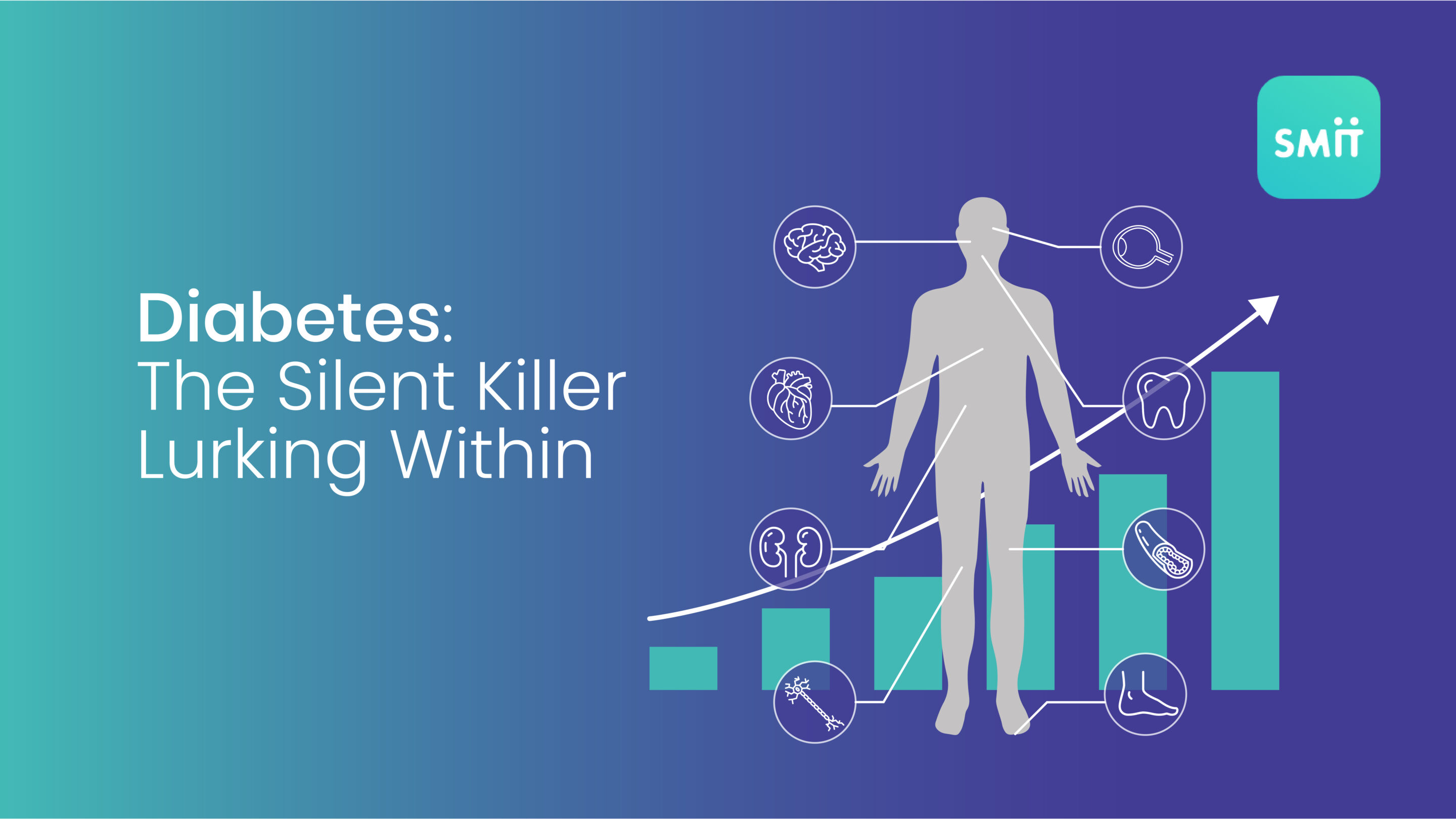Unmasking the True Nature of Diabetes and the Urgent Need for Aggressive Risk Factor Reduction
Introduction:
Diabetes mellitus, especially Type 2 diabetes, is often misunderstood as a mild ailment. However, this couldn’t be further from the truth. The reality is that diabetes is a cluster of cardiovascular risk factors, commonly known as metabolic syndrome or insulin resistance syndrome. It silently accelerates atherosclerotic (macrovascular) disease, leading to premature cardiovascular death. That being said, significant research and effort have been dedicated to exploring and comprehending methods for mitigating the condition and maintaining a diabetes-free lifestyle. In this blog, we will explore the stealthy nature of diabetes as a silent killer, emphasizing the critical importance of aggressively reducing risk factors to enhance the prognosis of those affected and effectively manage this metabolic health condition.
The Silent Killer: Unmasking the True Nature of Diabetes:
Diabetes is not just about high blood sugar levels and occasional symptoms of thirst and polyuria. In fact, it is a formidable silent killer because it often remains asymptomatic for years while wreaking havoc on the cardiovascular system. Accelerating atherosclerosis, the buildup of plaque in arteries, can occur long before clinical diabetes sets in. This unnoticed progression contributes to a staggering 70% of diabetes-related deaths, making cardiovascular disease the primary cause of mortality in Type 2 diabetic patients.
Epidemiology: A Global Concern:
Diabetes is far from rare. It is a significant public health issue worldwide. The prevalence of Type 2 diabetes has been estimated to increase dramatically in the coming decades. Lifestyle changes, such as unhealthy diets high in saturated fats and reduced physical activity, are some of the leading contributors to this alarming trend. Ethnic communities, older individuals, and certain populations living in Western cultures are particularly at risk.
Morbidity and Mortality: Facing the Consequences:
The macrovascular complications associated with Type 2 diabetes, including heart attacks, angina, heart failure, and strokes, are significantly more common and severe in diabetic individuals. The mortality rate for those diagnosed with diabetes is approximately double that of the non-diabetic population. Furthermore, even before a diagnosis of diabetes, the risk of cardiovascular disease is comparable to that of non-diabetic individuals who have already experienced a heart attack.
The Metabolic Syndrome: A Complex of Risk Factors:
Type 2 diabetes is now understood as a complex of risk factors for cardiovascular disease. Referred to as the metabolic syndrome, it involves insulin resistance, hyperinsulinemia, central obesity, glucose intolerance, hypertension, dyslipidemia, and a procoagulant state, among others. Early diagnosis and intervention are crucial in managing this deadly cluster of risk factors.
Managing Risk Factors: The Path to Better Prognosis:
To improve the prognosis of Type 2 diabetes, comprehensive and proactive management of risk factors is essential. Strict control of blood glucose, blood pressure, and lipid levels can significantly reduce the risk of diabetic complications. Even modest reductions in hyperglycemia and blood pressure yield substantial benefits.
Conclusion: The Call to Action:
Diabetes is not a condition to be taken lightly. It demands immediate attention and aggressive action to prevent the tragic consequences of cardiovascular complications. Early diagnosis, education, lifestyle changes, and medical interventions are all key components of managing diabetes and its associated risk factors. By recognizing the true nature of this silent killer and implementing robust risk reduction strategies, we can pave the way for healthier and longer lives for those living with Type 2 diabetes.
So, let us unite in the fight against diabetes, working towards a healthier world for all, free from the clutches of this silent killer.
References:
Campbell, I. W. (2001). Type 2 diabetes mellitus: The silent killer. Practical Diabetes International, 18(6), 187–191. https://doi.org/10.1002/pdi.230
Agarwal, C.Jahan, T.Parveen, N. & Yousuf, Y. (2018). Diabetes The Silent Killer. JETIR. 5 (8), 444-446.



0 Comments